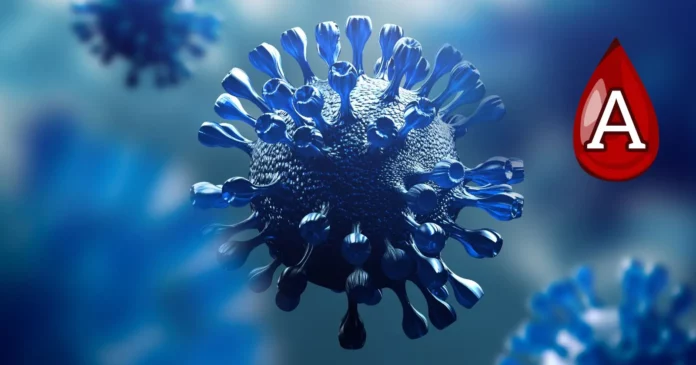A recent study has uncovered a significant association between blood group A and a higher susceptibility to SARS-CoV-2, the virus responsible for causing Covid-19. The research reveals that cells belonging to blood group A are more prone to infection compared to those of blood group O.
Previous investigations had hinted at the potential vulnerability of individuals with blood group A to the novel coronavirus, while those with blood group O appeared to be somewhat less susceptible. However, until now, the precise mechanism underlying this disparity remained elusive.
The study, led by Sean R. Stowell from Harvard Medical School, sheds light on the matter. Stowell explains, “We show that the part of the SARS-CoV-2 spike protein that enables the virus to invade cells demonstrates a particular affinity for blood group A cells, resulting in the virus displaying a preferential ability to infect them.”
Laboratory experiments conducted by Dr. Stowell and his team demonstrated that introducing a protein that inhibits SARS-CoV-2 from recognizing specific blood group antigens effectively blocked the virus’s inclination to infect blood group A cells. However, it had no impact on blood group O cells. Conversely, introducing a different protein that did not hinder the recognition of blood group antigens had no infection-inhibiting effects on either blood group A or O cells.
Related post: Shocking New Theory Reveals Startling Link Between Covid Vaccines and Ringing Ears!
Dr. Stowell further emphasizes, “Blood group A cells were more likely to be infected with SARS-CoV-2 in comparison to blood group O cells.” Additional experiments revealed that the Omicron strain of SARS-CoV-2 displayed an even stronger preference for infecting blood group A cells than the original virus.
While these findings elucidate one aspect of how blood group A may directly influence the risk of SARS-CoV-2 infection, Dr. Stowell cautions against misconstruing the results as a suggestion that individuals with blood group O are exempt from taking precautions.
Although studies suggest that among a group of several thousand people, individuals with blood group A may be 20% more likely to be infected following exposure to SARS-CoV-2 compared to those with blood group O, it is essential to note that individuals with blood group O can still contract and transmit the virus. Factors such as age and underlying chronic conditions like heart disease remain more critical determinants of an individual’s risk for severe SARS-CoV-2 infection.
Dr. Stowell concludes, “Blood group is just one of the many variables that contribute to an individual’s likelihood of becoming infected with SARS-CoV-2 following exposure. Regardless of their blood group, individuals should ensure they are fully vaccinated against Covid-19 and continue to adhere to preventive measures based on their level of risk.”
Further research will be necessary to uncover additional features of the virus that may be responsible for its affinity toward blood group A, as well as to understand the persistence of this preference as new variants of SARS-CoV-2 emerge.

